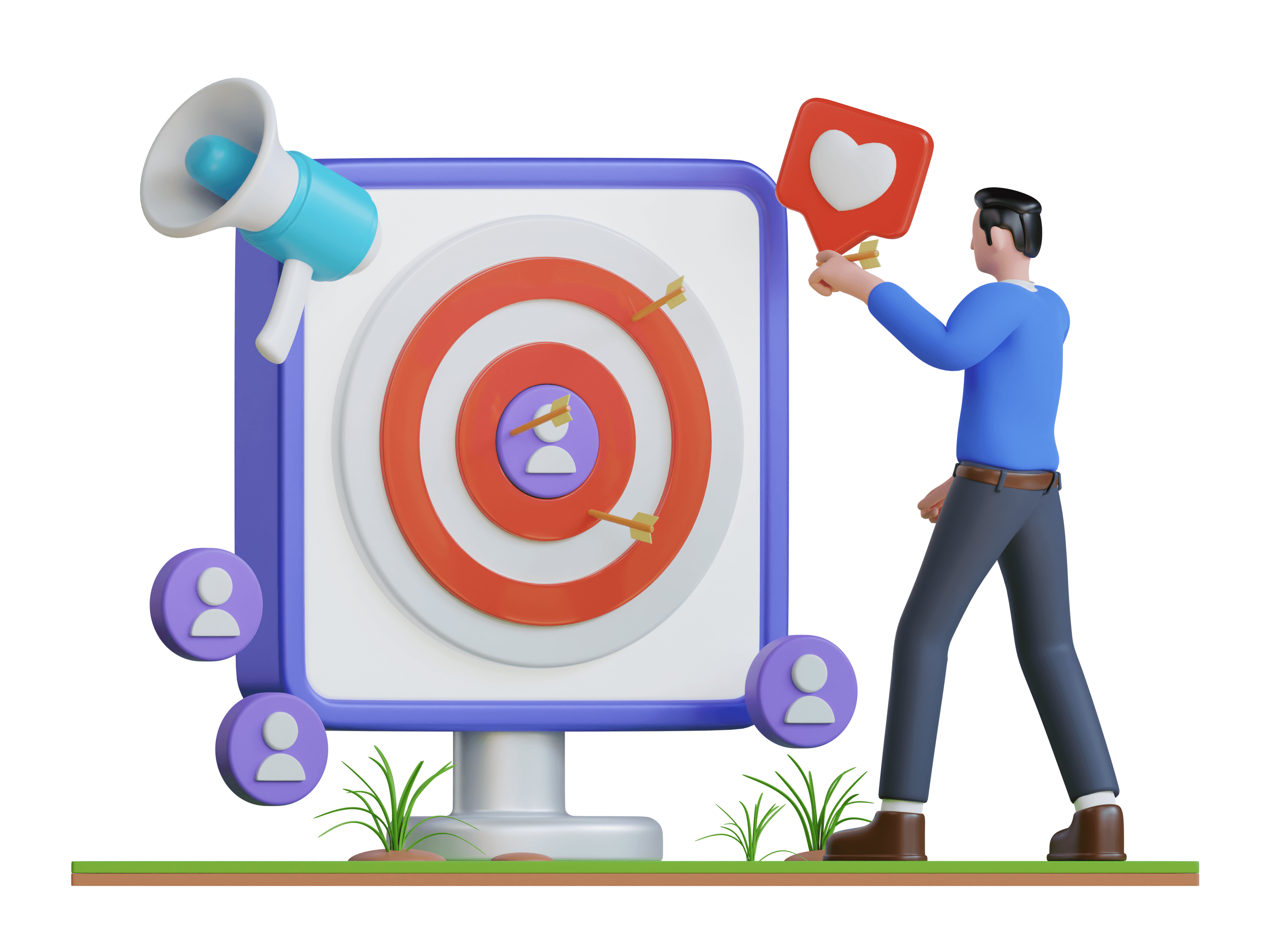In today’s digital-first world, having a well-defined digital marketing strategy is crucial for small businesses aiming to compete and thrive. A strategic approach allows you to reach your target audience, enhance brand visibility, and drive conversions effectively. Here’s how to craft a winning digital marketing strategy that can propel your small business forward.

1. Define Your Business Goals
Setting clear and measurable goals is the foundation of any successful marketing strategy. Start by identifying what you want to achieve through your digital marketing efforts, whether it's increasing website traffic, generating leads, or boosting sales. Use the SMART criteria—Specific, Measurable, Achievable, Relevant, and Time-bound—to create actionable objectives that align with your overall business strategy.

2. Understand Your Target Audience
A deep understanding of your audience is critical to crafting messages that resonate. Develop detailed buyer personas that represent your ideal customers, including demographics, interests, challenges, and online behaviour. Utilise surveys, social media insights, and market research to gather data and refine your understanding of your audience. Segment your audience to tailor your marketing efforts, ensuring relevance and engagement.

3. Conduct a Competitive Analysis
Analyse your competitors to identify their strengths and weaknesses. Look at their digital presence, including website design, content strategies, social media engagement, and advertising tactics. Tools like SEMrush or Ahrefs can help you gain insights into their traffic sources and keywords. This analysis will help you find gaps in the market and inform your unique selling proposition (USP).

4. Establish a Strong Online Presence
A professional and user-friendly website is essential for any digital marketing strategy. Ensure your site is mobile-responsive, easy to navigate, and visually appealing. Optimise your website for search engines (SEO) by conducting keyword research, improving page load speed, and creating high-quality content that answers user queries. In addition to your website, maintain a presence on relevant social media platforms. Identify which platforms your audience uses most frequently and focus your efforts there. Engage with your audience through regular posts, responding to comments, and participating in discussions to build a loyal community around your brand.

5. Develop a Content Marketing Strategy
Content is at the heart of digital marketing. Create a content marketing strategy that aligns with your audience's interests and needs. Develop a variety of content types, including blog posts, videos, infographics, and podcasts. Focus on providing value—educate, entertain, or solve problems for your audience. A content calendar can help you organise and schedule your posts, ensuring a consistent flow of information. Optimise your content for SEO to improve visibility and drive organic traffic. Don’t forget to promote your content through social media and email newsletters to maximize reach. In addition to your website, maintain a presence on relevant social media platforms. Identify which platforms your audience uses most frequently and focus your efforts there. Engage with your audience through regular posts, responding to comments, and participating in discussions to build a loyal community around your brand.

6. Utilize Email Marketing
Email marketing remains one of the most effective digital marketing channels. Build a robust email list by offering incentives such as discounts or exclusive content. Segment your audience based on behaviour and interests to personalise your campaigns effectively. Create compelling email content that engages your subscribers, provides value, and encourages action. Monitor key metrics like open rates, click-through rates, and conversions to assess the effectiveness of your email marketing efforts and make adjustments as needed.

7. Leverage Paid Advertising
While organic strategies are important, paid advertising can offer immediate visibility and results. Platforms like Google Ads and social media ads allow you to target specific demographics and interests. Set a budget and monitor your campaigns closely to ensure you achieve a positive return on investment (ROI). Consider utilising remarketing strategies to re-engage users who have visited your site but did not convert. By reminding them of your products or services, you increase the chances of conversion.

8. Monitor and Analyze Performance
Regularly tracking your performance is essential to understanding the effectiveness of your digital marketing strategy. Use analytics tools like Google Analytics to monitor website traffic, user behaviour, and conversion rates. Identify key performance indicators (KPIs) that align with your business goals and track them consistently. Create regular reports to analyse the data and identify trends, successes, and areas for improvement. This information will help you make informed decisions and refine your strategies over time.

9. Stay Agile and Adapt
The digital marketing landscape is constantly evolving. Stay aware of emerging trends, technologies, and consumer behaviours that could impact your strategy. Foster a culture of adaptability within your team, encouraging experimentation and innovation. Regularly revisit your goals and strategies to ensure they remain relevant in a changing market. Be willing to pivot your approach based on data insights and feedback from your audience.

10. Commit to Continuous Learning
Digital marketing is an ever-evolving field, and ongoing education is vital for success. Keep up with industry news, attend webinars, and participate in workshops to enhance your skills and knowledge. Networking with other marketing professionals can provide fresh perspectives and insights. Encourage your team to pursue training and certifications in relevant areas to ensure your business stays competitive. A commitment to learning will empower you to adapt to new challenges and seize opportunities as they arise.Creating a winning digital marketing strategy for small businesses requires a thoughtful and strategic approach. By defining your goals, understanding your audience, and utilising a mix of online tactics—from SEO and content marketing to paid advertising and email campaigns—you can effectively enhance your brand’s visibility and drive growth. Continuous monitoring and adaptation will ensure that your strategy remains effective in an ever-changing digital landscape. With dedication and the right tools, your small business can thrive online and achieve long-term success.
Digital marketing is an ever-evolving field, and ongoing education is vital for success. Keep up with industry news, attend webinars, and participate in workshops to enhance your skills and knowledge. Networking with other marketing professionals can provide fresh perspectives and insights.
Encourage your team to pursue training and certifications in relevant areas to ensure your business stays competitive. A commitment to learning will empower you to adapt to new challenges and seize opportunities as they arise.
if you are looking for best digital marketing services in pune then free fill to contact orgodigital

